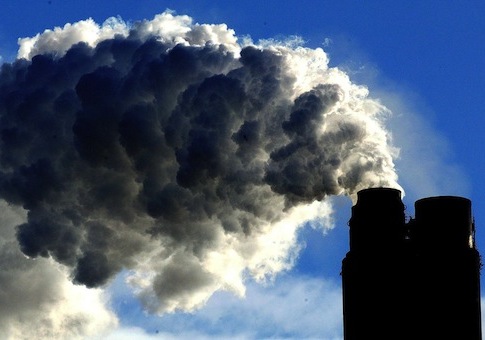The Department of Energy (DOE) put up hundreds of millions of dollars to back a risky "clean coal" project despite doubts about its viability after a company whose top executive is a large Democratic donor acquired it.
DOE agreed in 2009 to contribute $308 million in stimulus to the construction to a $2.8 billion coal plant with carbon sequestration technology.
BP and Rio Tinto, which owned the plant’s parent company, decided in 2011 the project was not financially viable and told DOE they would withdraw from the agreement.
With DOE’s help, they found a company to take over the project: Massachusetts-based SCS Energy. The department pledged another $100 million for the project, which was projected to cost another $1.2 billion above initial estimates.
SCS chairman and chief executive James Croyle is a major Democratic donor, according to the Center for Responsive Politics.
Croyle donated $2,300 to President Barack Obama’s 2008 campaign, more than $31,000 to the Democratic Senatorial Campaign Committee in 2010, and nearly $5,000 to scandal-plagued Sen. Bob Menendez (D., N.J.) in 2009 and 2011.
"The problems encountered with the terminated $2.8 billion agreement, economic viability and securing power purchase agreement arrangements were acknowledged and understood within the department" at the time, according to a report released last week by DOE’s inspector general.
The department insisted that its subsequent agreement with SCS was financially sound, but "the department relied on financial projections that were not always fully supported," the IG found.
Financial projections by SCS that the IG said were unreasonably optimistic went unquestioned by DOE officials overseeing the project, the report found.
The report questioned projections of interest rates for project financing, operations and maintenance costs, and property tax payments.
"A local independent non-profit organization indicated that HECA's property taxes could be roughly 10 times higher than projected," the report found.
Subsequent cost revisions by SCS found the project would cost an additional $800 million. Even that projection did not account for what the IG claims are unrealistic interest rate projections.
SCS did not return a request for comment on the report by press time.
